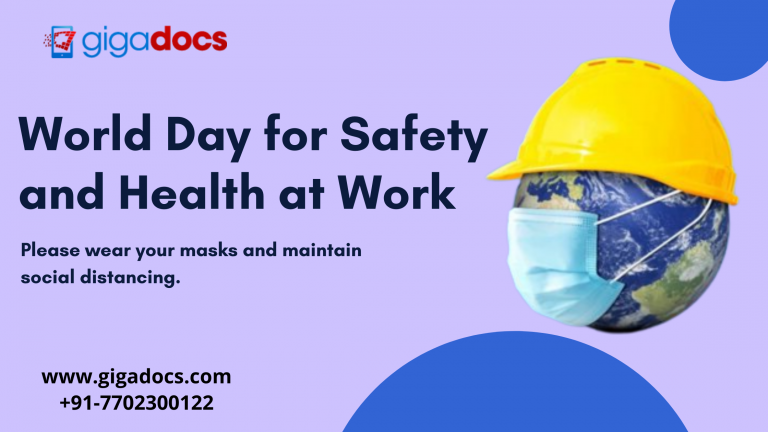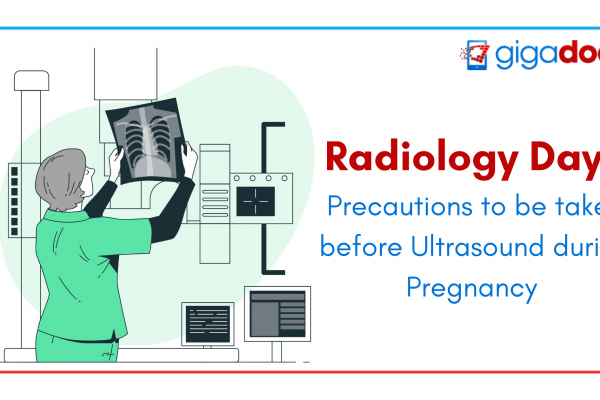The World Day for Safety and Health at Work aims to extend awareness about workplace accidents and diseases that spread due to inadequacies at the workplace. Celebrated on the 28th of April annually, World Day for Safety and Health at Work looks forward to bringing a health safety culture and reducing accidents in the workplace.
This blog will provide you with advice on avoiding workplace injuries, combating job dissatisfaction and unemployment stress, and paying attention to achieving a work-life balance.
Work and Your Health
Working at a job that we enjoy and find fulfilling can provide a meaningful focus for our lives while also providing a source of income. Our standard of living is determined by our earnings, and work often influences our self-image and self-esteem.
- Symptoms of work-related stress include stress, bullying, accidental death, and violence.
- The stress of dealing with changing work circumstances beyond your control can put you at risk for health issues like anxiety and depression.
Workplace Unhappiness
A rewarding career can be challenging to find; also, job dissatisfaction brings unhappiness and anxiety in the workplace, which cannot be ignored. Not to forget, a person’s ability to change jobs may be limited by previous choices or life circumstances. People who are dissatisfied with their careers may also face issues such as:
- Workplace conflict with bosses or coworkers.
- Harassment, bullying, discrimination.
- Boredom.
- Overwork, stress, or a lack of safety concerns.
- There are no prospects for advancement.
- Insufficient Pay.
We often hear of burnout, a common phenomenon that happens in today’s workplace. Burnout is also called ‘Workaholics,’ who devote all their energy to their job, putting their family, social life, and personal interests in danger.
Bullying and Violence in the Workplace
Workplace violence is defined as a conflict that has escalated to physical, emotional, or psychological harm. Anyone in the workplace, including an employer, coworker, customer, or service user, could incite an attack.
Managing the Effects of Unemployment
Job loss, retrenchment, and unplanned unemployment can result in hardship and distress, leading to health issues. It’s natural to feel different emotions, including a sense of powerlessness, shock, anger, and guilt. Financial strains, feelings of failure or undervaluation, and the emotional exhaustion of job hunting can all lead to depression, fatigue, stress, and anxiety over time.
Workplace Risks on the Rise
Technical innovation, as well as social and organizational change, can result in new and emerging occupational risks, such as:
- New working conditions, such as increased workloads, downsizing-related work intensification, poor working conditions associated with migration for work, and informal economy jobs.
- Self-employment, outsourcing, and temporary contracts are examples of emerging forms of employment that can cause anxiety and depression in the long run.
Workplace Health Issues and How to Address Them
- Headaches
A headache is one of the first issues that affect every employee. Working in a competitive environment can cause stress, leading to headaches. Aside from that, poor body posture can exacerbate the problem.
Take regular breaks between tasks to avoid headaches at work. After an hour of continuous work, a short break can help tremendously. You should also encourage employees to engage in daily workouts, yoga, and proper posture in the workplace.
- Backache
Almost every office worker suffers from bad posture. It’s primarily due to a lack of awareness and insufficient office equipment. Back pain is one of the issues that a bad posture brings to the table. It is primarily due to the nature of sedentary work.
When employees spend extended periods at a desk, they are prone to slouching without realizing it. It puts a lot of strain on the hips and back, resulting in back pain. Move around as much as possible and avoid sitting for long periods. The key is to avoid sitting in one position for long and instead practice a stretch at your desk.
- Strain in the eyes
Most workers experience eye strain due to spending all day in front of a computer. Dry eyes and a painful sensation are common symptoms of eye strain. It is caused by staring at a computer screen for an extended period. We can avoid it by using proper lighting at our workstation and adjusting the computer screen’s brightness.
- Carpal Tunnel Syndrome (CTS)
Carpal Tunnel Syndrome is pain that develops around the hands and wrists due to repetitive hand motions at work- this can result in numbness and itching around the hands in the most severe cases. Practice hand stretches at your desk to avoid this. For maximum protection against such disorders, you should also invest in proper workplace ergonomics.
- Obesity
Gaining weight is another obvious health issue that is common among office workers. Sitting in front of a computer isn’t conducive to weight loss. Obesity in the workplace is caused by poor eating habits, a lack of exercise, stress, a sedentary lifestyle, and other factors.
- Mental Well-Being
Mental well-being is as important as one’s physical well-being. Employees are more vulnerable to mental health issues in today’s competitive environment with rising workplace stress levels. For this reason, you must attend to your mental health concerns.
- Arrests of the heart
Another fatal health issue in the workplace is cardiac arrest. A heart attack, electrocution, or asphyxiation can all cause it (death or unconsciousness due to lack of oxygen in a confined space).
Health Care at Work with Gigadocs
A person’s most valuable investment is health. This is especially true in times like these when dealing with a COVID-19 outbreak. There is no way to achieve success and happiness without good health.
As an employer employers must do everything possible to look after their employees. By following the points mentioned above, you can reduce the health problems of your office workers.
To improve your health, download the Gigadocs wellness apps. Gigadocs provides live vitals tracking, health tips, and informative blogs to stay healthy. If you have a health concern, you can schedule a test and consultation with one of our expert telehealthcare doctors.
To understand Gigadocs and its applications, request a free demo today!
Download the Gigadocs App from:
- IOS App – apple.co/2W2iG4V
- Android App – bit.ly/33AQoRC
To know more, e-mail at info@gigadocs.com




